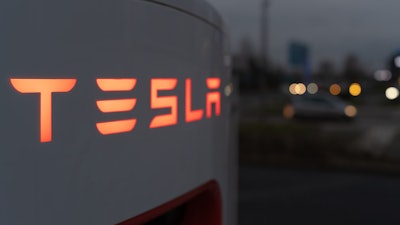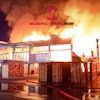
DETROIT (AP) — U.S. auto safety regulators have sent a team to investigate a fatal crash in Virginia involving a Tesla suspected of running on a partially automated driving system.
READ MORE: Fatal Tesla Crash Draws Investigators to Site of Collision
The latest crash, which occurred in July, brings to 35 the number of Tesla crashes under investigation by the National Highway Traffic Safety Administration since June of 2016. In all the cases, the agency suspects the Teslas were operating on a partially automated driving system such as Autopilot. At least 17 people have died.
The safety agency said in documents Thursday that the Tesla ran beneath a heavy truck, but gave no further details.
The Fauquier County Sheriff's office in Virginia said in a statement that on July 19, a Tesla ran underneath the side of a tractor-trailer pulling out of a truck stop, killing the Tesla driver. The department says the truck driver was charged with reckless driving.
Sheriff's office spokesman Jeffrey Long said the possible role of automated driving systems in the crash is under investigation. The sheriff's office "is investigating the crash to determine the cause and any potential culpability," Long said in an email. "The NHTSA is also involved and will contribute their expertise toward any investigative conclusion."
Messages were left Thursday seeking comment from Tesla.
Recent crashes NHTSA is investigating include a July 5 head-on collision between a Tesla Model 3 and Subaru Impreza in South Lake Tahoe, California. The driver of the Subaru and an infant traveling in the Tesla were killed.
NHTSA also sent investigators to a March 15 crash in Halifax County, North Carolina, that injured a 17-year-old student. The State Highway Patrol said at the time that the driver of the 2022 Tesla Model Y, a 51-year-old male, failed to stop for the bus, which was displaying all of its activated warning devices.
The U.S. safety agency has been looking into a string of crashes involving Teslas that are suspected of operating on partially automated systems such as Autopilot and "Full Self-Driving." Neither system can drive itself despite the names. Tesla says on its website that drivers must be ready to intervene at any time.
The agency hasn't made public the results of the special crash investigation teams. At least two of the investigations involved Teslas running beneath tractor-trailers crossing in front of them.
In addition to the special crash investigations, NHTSA has opened at least six formal investigations into Tesla safety problems during the past three years.
Investigators are looking into Teslas that can crash into parked emergency vehicles while running on the Autopilot driver-assist system, emergency braking for no reason, suspension failures, steering wheels that can fall off, steering failures, and front seat belts that may not be connected properly.
Autopilot can keep a car in its lane and away from vehicles in front of it, while Tesla says "Full Self-Driving" can take on most driving tasks and is being tested on public roads by owners. In each case, Tesla tells owners they must be ready to intervene at all times.
Michael Brooks, executive director of the nonprofit Center for Auto Safety, said Autopilot is faulty and should be recalled. Many Tesla drivers clearly aren't paying attention and are relying too much on the system to drive the vehicles, he said.
The recall "should be a slam dunk," Brooks said. "That's why I think it's baffling why this is taking so long, and why we having to keep watching people die."






















